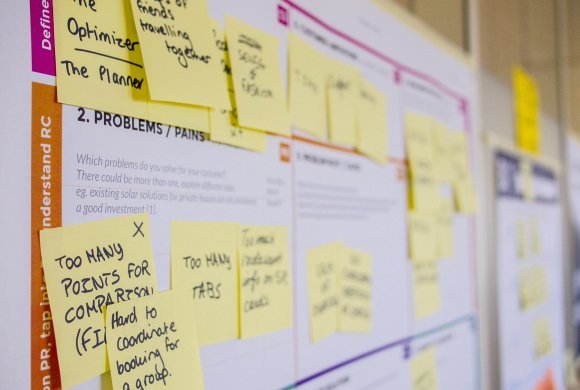Mindful Leadership
There was a time when leaders were revered and respected for being sharp, decisive, competitive, even ruthless in the pursuit of their organizational goals. As long as they delivered results, accountability was not necessary, and many a company ran into trouble because of this. Those leaders led top-down with an iron fist. They commanded and controlled their workforces and treated people as a means to their (bottom line) end. They were courageous, self-reliant risk-takers who stopped at nothing to make things happen and who abhorred showing weakness or vulnerability.
Today, leaders are respected for the opposite traits. People want to follow leaders who know them and understand what they’re up against in the workplace. They want leaders who are honest, vulnerable, and accountable for their actions; who admit when they make mistakes and apologize when appropriate. They want to know their leaders care about them as people and treat them as equals, working together toward the same goals. Those kinds of leaders have a positive impact on the people who work with and for them, and inspire people to stay in the organization.
In today’s tough labour market, the old style leader doesn’t have a chance of retaining a highly valued, skilled and scarce workforce. In fact, the skills that make a leader successful now, are the very things that used to be considered weakness to be avoided at all costs.
4 Essential Leadership Qualities
1. Credibility – Today’s employees want to work for credible leaders who demonstrate integrity and transparency. They want to know that their leaders are the same at the executive table as they are in the lunch room rubbing shoulders with the staff. They want to see real humans who have challenges and struggles just like everyone else; who make mistakes and take responsibility rather than covering them up. A credible leader both extends trust and is trustworthy.
2. Inclusivity – Respected leaders are inclusive. They don’t lead from the top, making all the decisions on their own and dictating what everyone is to do. They “walk the floor” and are in tune with what the employees have to say about important aspects of business success. They work side-by-side with the team rather than alone in the corner office. They are open and let employees know what’s going on in the business and how they are contributing to its success. They don’t white wash problems, but bring them to the group to solve together. They value everyone’s feedback and ask for it often.
3.Agility – To survive in today’s business environment, leaders need to be agile. This means not holding anything too tightly, navigating change well, and being able to turn on a dime when circumstances require it. If they are seen as credible and have been inclusive, their teams will also be able to turn on that dime, because they trust the person at the helm. Agility requires letting go of old ways of doing things and being willing to re-invent as business and customer demands change over time.
Change Researcher and Reinvention Expert, Dr. Nadya Zhexembayeva’s extensive research on organizational life cycles indicates that whereas 50 years ago, a company’s life expectancy was 75 years, globalization and the shift in power in the marketplace from buyer to seller is dramatically shortening that life expectancy, without some form of reinvention. By 2001, that same life cycle was 15 years and currently, it’s only 7 years. Zhexembayeva says that in order to survive, companies must begin the process of reinvention at the middle of this cycle. This means current businesses must be thinking about it every 3.5 years!
An agile leader knows and understands this and is willing to make those adjustments and bring his or her team along with them. An inclusive and collaborative approach means they’ve been informed throughout the process, so they’re ready to change when necessary.
4.Sustainability – Burnout used to be a badge of honour. It meant you were committed, hard-working, tough, and able to go to the wall for your company. But burned out leaders don’t lead well, and those employees who watch it unfold find themselves afraid of what will happen to them if their leaders implode. Effective leaders plan for and practice sustainable habits that keep them sane, and safe from burnout. They don’t work 80 hour weeks (a hallmark of an old-style leader), prioritize family, do things they love outside of work, take care of themselves physically and emotionally, engage in healthy social activities, and often have a deep faith or spiritual connection that sustains and guides them in their actions. In a turbulent, changing, challenging, environment, only those leaders who are committed to personal sustainability will survive and thrive.
Mindfulness at Work
It’s often easier (and faster) to just do things yourself rather than include your team. It takes less effort to assign tasks even if people don’t know why they are doing them. Change is hard, and who wants to reinvent themselves every 3.5 years? It’s exhausting. And who has time for sustainable practices? Perhaps the better question is, what happens if I don’t?
Here are some questions that can lead you to becoming more mindful in developing those characteristics and growing your leadership effectiveness.
- How credible are you? Do you do what you say you will do? Do you regularly extend trust to your team members and behave in a way that leads others to trust you? Is your character the same in all aspects of your life (i.e. can people depend on you to be who you are in all circumstances)? Are you willing to be vulnerable with your team – let them see that you sometimes struggle and make mistakes like they do? Do you admit when you’re wrong and ask for forgiveness? Are you believable and approachable?
- How inclusive are you? Do you routinely ask your team for their feedback on how things are going for them and in the business? Do you keep them apprised of things that are important regarding business growth (or business challenges)? Do you take time to get to know your team members personally – do they feel you care about them? Do you spend time with your employees “on the floor”, side by side, learning what they are struggling or finding success with day to day? Do you openly affirm and validate them for their feedback and ideas?
- How agile are you? Are you open to change, and effectively keep your team prepared for changes that may come? Do you easily let go of old ways of doing things and welcome new ideas from your team, as well as constantly look for ways to reinvent your business? Do you hold things loosely, so that if you need to change you can do so quickly? Are you a flexible thinker? Do you help your team practice adapting to change?
- Are you being intentional about practicing sustainable habit? Burning out is not an option, so what are you doing to ensure it doesn’t happen to you? Are you managing your workload so that it’s balanced with family and personal time? Do you spend time doing things you love to do, just because you love to do it? Do you have hobbies and interests outside of work? Do you practice meditation, mindfulness, prayer, or other soul-sustaining habits? Do you make time for friends and social activities? Are you aware of what drains your energy and what gives you joy, and are you making sure there’s more energy gains than drains?
Mindful leadership doesn’t just happen. It requires planning, intention, commitment and time. It also means sometimes doing things that feel counter-intuitive. The end result is not only worth it, but essential in running a successful, lasting business today.




